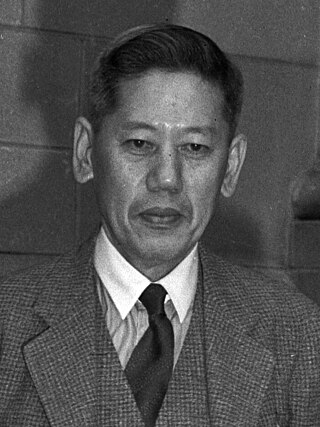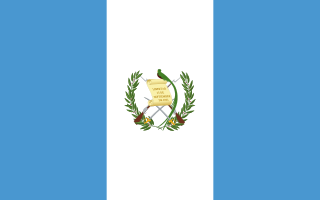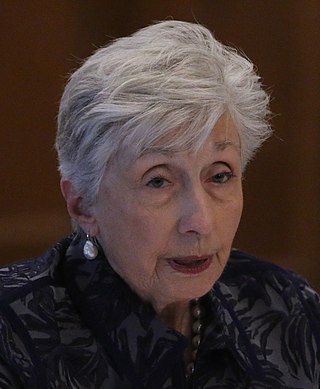Related Research Articles

Deportation is the expulsion of a person or group of people from a territory. The actual definition changes depending on the place and context, and it also changes over time. Forced displacement or forced migration of an individual or a group may be caused by deportation, for example ethnic cleansing, and other reasons. A person who has been deported or is under sentence of deportation is called a deportee.

The United States border with Mexico is one of the world's "most lethal land borders". Hundreds of migrants die per year as they attempt to cross into the United States from Mexico illegally. The US Border Patrol reported 251 migrant deaths in the fiscal year 2015, which was lower than any year during the period 2000–2014, and reported 247 migrant deaths in fiscal year 2020, lower than any year since 1998. Poverty, gang violence, poor governance, etc. are the main factors as to why migrants cross the US border. US Border Patrol recorded 557 southwest border deaths during fiscal year 2021 and 748 in the first 11 months of fiscal year 2022, the most deaths ever recorded.

The Immigration Reform and Control Act was passed by the 99th United States Congress and signed into law by U.S. President Ronald Reagan on November 6, 1986.
Leo Ralph Chavez is an American anthropologist, author, and professor, best known for his work in international migration, particularly among Latin American immigrants.

Aviva Chomsky is an American professor, historian, author, and activist. She is a professor of history and the Coordinator of Latin American, Latino and Caribbean Studies at Salem State University in Massachusetts. She previously taught at Bates College in Maine and was a research associate at Harvard University, where she specialized in Caribbean and Latin American history.

Yamato Ichihashi was one of the first academics from East Asia in the United States. Ichihashi wrote a comprehensive account of his experiences as an internee at the Tule Lake War Relocation Center, where he was detained during World War II along with other relocated Japanese Americans.
Illegal immigration, or unauthorized immigration, occurs when foreign nationals, known as aliens, violate US immigration laws by entering the United States unlawfully, or by lawfully entering but then remaining after the expiration of their visas, parole or temporary protected status.
Illegal immigration is the migration of people into a country in violation of that country's immigration laws, or the continuous residence in a country without the legal right to do so. Illegal immigration tends to be financially upward, from poorer to richer countries. Illegal residence in another country creates the risk of detention, deportation, and other imposed sanctions.

Guatemalan Americans are Americans of full or partial Guatemalan descent. The Guatemalan American population at the 2010 Census was 1,044,209. Guatemalans are the sixth largest Hispanic group in the United States and the second largest Central American population after Salvadorans. Half of the Guatemalan population is situated in two parts of the country, the Northeast and Southern California.

Emigration from Mexico is the movement of people from Mexico to other countries. The top destination by far is the United States, by a factor of over 150 to 1 compared to the second most popular destination, Canada.
African immigrants to Latin America include citizens and residents of countries in Latin America who were born in, or with recent ancestors from Africa. This excludes descendants of people who were forcibly transported to the Americas through the Atlantic slave trade.

The United States government holds tens of thousands of immigrants in detention under the control of Customs and Border Protection and the Immigration and Customs Enforcement (ICE).

Deportation and removal from the United States occurs when the U.S. government orders a person to leave the country. In fiscal year 2014, Immigration and Customs Enforcement conducted 315,943 removals. Criteria for deportations are set out in 8 U.S.C. § 1227.

Isa Noyola is an American transgender activist, national leader in the LGBT immigrant rights movement, and deputy director at the Transgender Law Center. In 2015, she organized the first national trans anti-violence protest. This protest was an event that brought together over 100 activists, mostly trans women of color, to address the epidemic of violence trans communities face, especially as race and gender intersectionality relates to immigration and incarceration as they deal with transphobic systems.

Doris Marie Meissner is a former Commissioner of the Immigration and Naturalization Service (INS), the agency previously responsible for immigration enforcement in the United States. She headed the INS from October 18, 1993 to November 18, 2000, under United States President Bill Clinton and United States Attorney General Janet Reno. She is currently Senior Fellow and Director of the U.S. Immigration Policy Program at the Migration Policy Institute and has previously worked at the Carnegie Endowment for International Peace.
Ana Teresa Fernández is a Mexican performance artist and painter. She was born in Tampico, Tamaulipas, and currently lives and works in San Francisco. After migrating to the United States with her family at 11 years old, Fernández attended the San Francisco Art Institute, where she earned bachelor's and master's of fine arts degrees. Fernández's pieces focus on "psychological, physical and sociopolitical" themes while analyzing "gender, race, and class" through her artwork.

Jason De León is an anthropologist, a National Geographic Emerging Explorer (2013), and a MacArthur Foundation 2017 Fellow. He studies the migration from Latin America to the United States of clandestine migrants crossing the U.S.–Mexico border. De León is Professor of Anthropology and Chicana, Chicano, and Central American Studies and Director of the Cotsen Institute of Archaeology at the University of California, Los Angeles and Director of the Undocumented Migration Project, a non-profit research/arts/education collective aimed at documenting and raising awareness about migration issues while also assisting families of missing migrants search for their loved ones.

Monica Muñoz Martinez is a scholar of Mexican-American history current serving as an Associate Professor of History at the University of Texas at Austin. Martinez was previously the Stanley J. Bernstein Assistant Professor of American Studies and Ethnic Studies at Brown University and an Andrew Carnegie Fellow. Her research has been supported by the Andrew W. Mellon Foundation, the Woodrow Wilson National Fellowship Foundation, and the Texas State Historical Association. She has received praise for her work on several public history projects and her first book, The Injustice Never Leaves You: Anti-Mexican Violence in Texas was published in 2018 and received numerous awards. In 2021 she received a "Genius Grant" from the MacArthur Foundation.

Joe Biden's immigration policy initially focused on reversing many of the immigration policies of the previous Trump administration, before implementing stricter enforcement mechanisms later in his term.
In 2011, the U.S. Immigration and Customs Enforcement Agency revised its national detention standards and developed the Performance-Based National Detention Standards. According to U.S. Immigration and Customs Enforcement, "the PBNDS 2011 are crafted to improve medical and mental health services, increase access to legal services and religious opportunities, improve communication with detainees with no or limited English proficiency, improve the process for reporting and responding to complaints, and increase recreation and visitation." The PBNDS of 2011 is an important step in United States detention reform. Many revisions reflect efforts to tailor detention practices to the United States border's unique demands and circumstances. The PBNDS of 2011 revised detention standards among seven different sections. Although all sections detail essential contributions to improving the safety, security, order, care, activities, justice, and administration/management of U.S. border control, there are sections pertaining to the specific conditions of undocumented women.
References
- ↑ "Ana Raquel Minian". carnegie.org.
- 1 2 "Stanford historian Ana Minian is elected a Carnegie Fellow". Stanford Report. 1970-01-01. Retrieved 2024-10-19.
- ↑ "Ana Raquel Minian Andjel | Department of History". history.stanford.edu. Retrieved 2024-10-19.
- ↑ Hazelton, Andrew (2019-05-24). "Undocumented Lives: The Untold Story of Mexican Migration by Ana Raquel Minian (review)". Labor: Studies in Working-Class History of the Americas. 16 (2). Duke University Press: 160–162. doi:10.1215/15476715-7323973. ISSN 1558-1454 . Retrieved 2024-10-19.
- ↑ "This historian's new book on Mexican migration is perfectly timed". The World from PRX. 2018-04-24. Retrieved 2024-10-19.
- ↑ "US gov't mustn't rely on detention as a means of immigration control - book review". The Jerusalem Post | JPost.com. 2024-05-02. Retrieved 2024-10-19.
- ↑ Madrigal, Alexis (2024-05-20). "The Long Troubled History of US Immigration Detention and the Case for Ending It | KQED". www.kqed.org. Retrieved 2024-10-19.
- ↑ Canfield, Kevin (April 11, 2024). "Review: Stanford professor's book makes case against immigrant detention". Datebook | San Francisco Arts & Entertainment Guide. Retrieved 2024-10-19.
- ↑ Szalai, Jennifer (2024-04-17). "Book Review: 'In the Shadow of Liberty,' by Ana Raquel Minian". The New York Times. Retrieved 2024-10-19.
- ↑ "Intended to Be Cruel: On Ana Raquel Minian's "In the Shadow of Liberty"". Los Angeles Review of Books. 2024-06-02. Retrieved 2024-10-19.
- ↑ "'In the Shadow of Liberty' shines light on American immigration history". Legal Talk Network. Retrieved 2024-10-19.